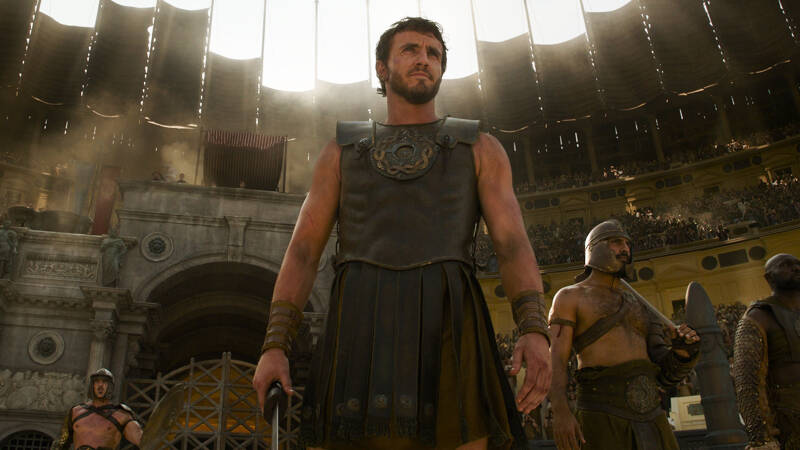
Ridley Scott’s Gladiator II arrives 23 years after the groundbreaking original, an epic that defined the early 2000s cinema landscape. This sequel, however, moves away from the shadow of Maximus and into the political complexities of a new generation. The film shifts its focus to Lucius, the son of Lucilla and Maximus, now grown and entrenched in the gladiatorial politics that his family once sought to escape. "Gladiator II" ultimately succeeds not by relying on nostalgia, but by charting a distinct path of its own while keeping the spirit of the original alive.
Paul Mescal takes on the role of Lucius with a performance full of nuance and restraint. Whereas the first film’s Lucius was a child witnessing the downfall of Commodus, this Lucius is older and entangled in the moral quagmire of empire-building, almost perfectly mirroring his father's path. Mescal's portrayal is grounded, grappling with the weight of an empire's corruption while also exploring the unresolved wounds of his family. His journey is one of coming into power, tempered by personal loss and philosophical struggle—an evolution that feels both timely and tragic.
Denzel Washington, a pivotal addition to the cast, plays Macrinus—a former gladiator turned influential businessman who raises his own private army for his own sinister motives. Macrinus serves as an ally, a mentor, and a pivotal crux to Lucius' journey, steering him through the intricate games of power that govern the Roman elite for his own personal gain. Washington brings his signature gravitas to the role, effortlessly blending wisdom, strength, and a looming sense of psychotic danger. His character is not simply a mentor, but an embodiment of Rome’s changing values, and the evil always patiently lurking, making him an essential figure in Lucius's journey.
Scott’s direction, as ever, remains impeccable. The film showcases the blood-soaked arenas of Rome with the director’s trademark attention to detail. The brutal, visceral nature of gladiatorial combat is both breathtaking and grotesque, highlighting the precarious balance between spectacle and brutality that defined the original film. The cinematography does an excellent job of capturing the scale of Rome while still focusing on the intimate, often tragic stories of those caught in the empire's machinery. Action sequences, while thrilling, never outshine the human drama at the core of the story.
Thematically, Gladiator II continues to explore the price of power, revenge, and the moral cost of empire-building. Where the first film offered a straightforward narrative of vengeance and honor, the sequel complicates these notions by introducing moral ambiguity, particularly in Lucius’s transformation. Lucius's relationship with the gladiatorial games becomes less about the thrill of combat and more about a necessity for control—his personal evolution is echoed in Rome's fractured state. This exploration of power, and its inherent corruption, grounds the film in a contemporary relevance that may resonate with modern political disillusionment.
In the end, Gladiator II succeeds by weaving together breathtaking visuals, strong performances, and a thoughtful exploration of power and legacy. Ridley Scott continues to show his skill for crafting epics that resonate on both a personal and grand scale. The film may occasionally falter in its pacing, but it ultimately delivers a conclusion that feels both cathartic and hopeful, proving that the saga of gladiators, empires, and the complexities of human ambition has much more to offer.
8/10
Add comment
Comments